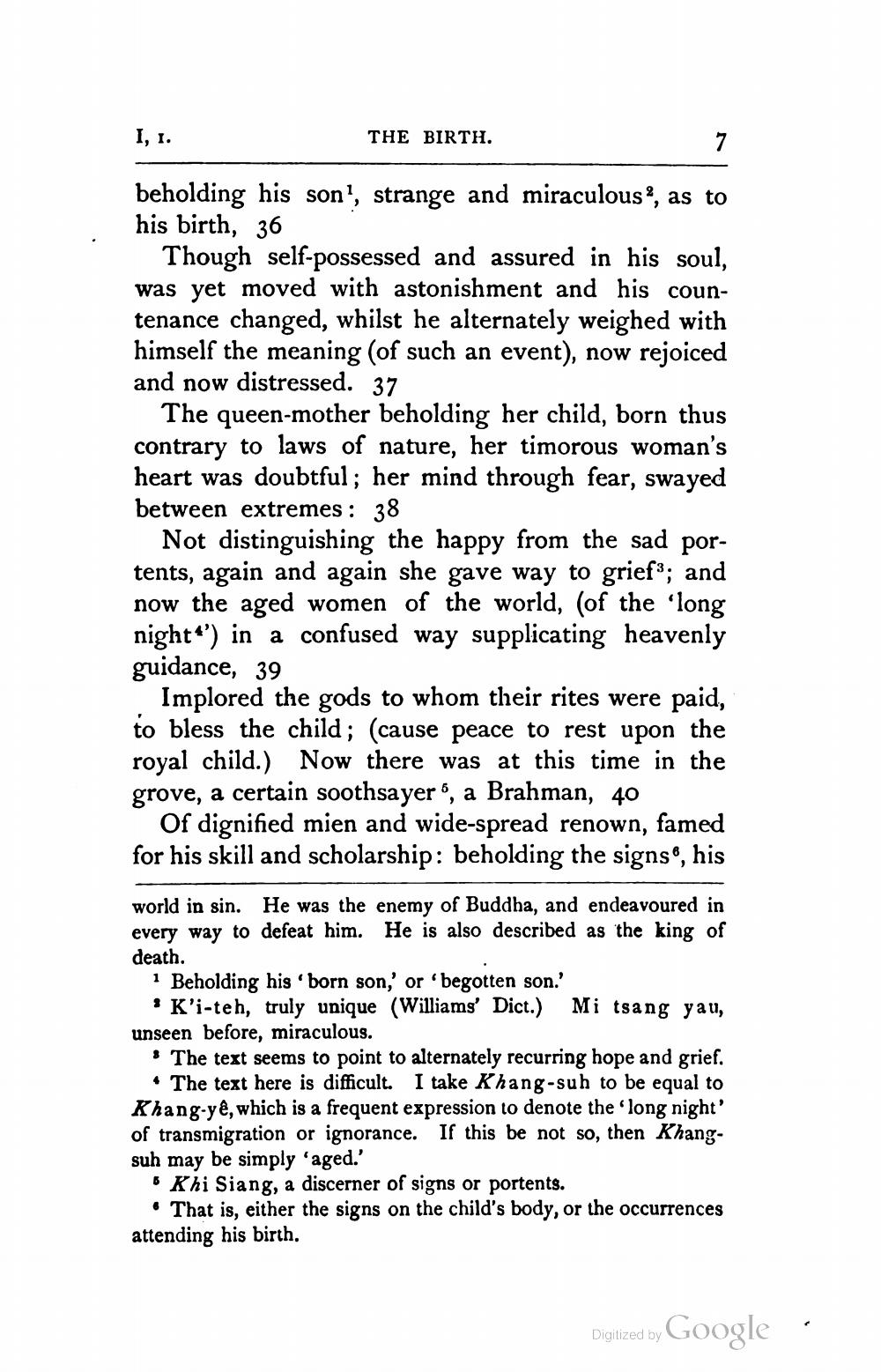________________
I, 1.
THE BIRTH.
beholding his son', strange and miraculous, as to his birth, 36
Though self-possessed and assured in his soul, was yet moved with astonishment and his countenance changed, whilst he alternately weighed with himself the meaning (of such an event), now rejoiced and now distressed. 37
The queen-mother beholding her child, born thus contrary to laws of nature, her timorous woman's heart was doubtful; her mind through fear, swayed between extremes : 38
Not distinguishing the happy from the sad portents, again and again she gave way to griefs; and now the aged women of the world, (of the 'long night*') in a confused way supplicating heavenly guidance, 39
Implored the gods to whom their rites were paid, to bless the child; (cause peace to rest upon the royal child.) Now there was at this time in the grove, a certain soothsayer, a Brahman, 40
Of dignified mien and wide-spread renown, famed for his skill and scholarship: beholding the signs, his
world in sin. He was the enemy of Buddha, and endeavoured in every way to defeat him. He is also described as the king of death.
1 Beholding his 'born son,' or 'begotten son.'
* K'i-teh, truly unique (Williams' Dict.) Mi tsang yau, unseen before, miraculous.
$ The text seems to point to alternately recurring hope and grief.
• The text here is difficult. I take Khang-suh to be equal to Khang-yê, which is a frequent expression to denote the 'long night' of transmigration or ignorance. If this be not so, then Khangsuh may be simply 'aged.'
Khi Siang, a discerner of signs or portents. . That is, either the signs on the child's body, or the occurrences attending his birth.
Digitized by Google
.




